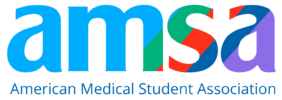Clinical Hours - The good, the bad, the scary
What are clinical hours?
Clinical hours are becoming incredibly important as part of your medical school application. These are hours that involve direct patient interaction and care- clinical hours and shadowing do not count. Typically, this comes in the form of clinical jobs, but some schools will accept volunteering as long as patient care is a part of the role. Each medical school is different! This is incredibly important to remember- what an M.D. school considers to be clinical hours, a D.O. school might not. It is essential to do your research.
What are some clinical jobs?
Clinical jobs typically require a certification in order to work. Some job titles include EMT-R, EMT-B, CCMA, CNA, Phlebotomy Technician, Scribe, Registered Behavioral Technician, and Patient Care Technician. Let's break them down.
EMT: EMT jobs are quite popular for pre-meds. If you are looking for a unique, fast-paced environment. Most jobs typically involve non-emergent transport, but you will get the opportunity to work alongside paramedics, which can provide a valuable perspective on healthcare. If you're interested, click here to learn about Georgia EMS programs. In Athens, National EMS will hire (with a certification) and assist in progressing your certification.
CNA/PCT: These roles are both quite similar. This job description involves assisting with activities of daily living (or ADLs). For those interested in long-term patient care and connection, this job is perfect. CNAs/PCTs often work in nursing homes to assist elderly residents with ADLs. They are often hired without certification or sponsored to gain a certification, so it's a perfect entry level position. PCTs are often hired at hospitals, but they don't usually gain long-term patient connections. However, the hospital environment is beneficial to learn more from nurses, physicians, medical students, and residents.
Scribe: This job is perfect for students who want to learn medical terminology, interact with patients, and work alongside a position. Often hired in an emergency room, scribes will shadow physicians and take notes on their rounds with them. This offers the opportunity to learn about different medical conditions hands-on. Scribe companies such as Scribe America will hire students, train them, and then connect them with a clinic in need of a scribe. These jobs are most often worked during the weekday, so it might not be the right fit if you have limited availability.
CCMA: A Certified Clinical Medical Assistant program is extremely popular among pre-med students! MAs are trained in phlebotomy, vitals assessment, and taking initial complaints. They work alongside a doctor, most often in a clinic setting, to assess the patient prior to their physician visit. This opportunity is incredible to work alongside doctors. Depending on the type of clinic, you might see the same patients repeatedly, providing a longer term connection with patients. These certification programs can be done in any number of months, but a certification is usually required for an MA position.
How do I get a clinical job?
Getting a clinical job depends on the type of job and the hiring company. Many places, including nursing homes and clinics, will hire without a certification- as long as you display an intent to continue and a passion for the field, they can train you or sponsor your certification! However, certifications are never a bad thing. Being officially trained is beneficial, especially as clinical jobs have a direct impact on the health of other people. When building your resume, emphasize any previous clinical experiences you have. Show your ability to work and collaborate with a team of people.
If you're interested in getting certified, many summer programs exist in the Athens and Atlanta area. Simply searching up "[AREA] + [CLINICAL JOB] + [summer certification]" will get you further than you think! Of course, if you have any questions, fill out the Coffee with Exec form here to talk to our exec board and their clinical experiences!
